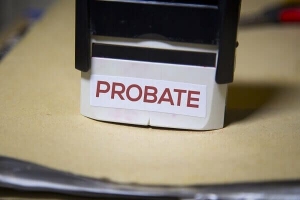
For most families, probate administration is a fairly straightforward process. In most cases, no one will object to the probating of the deceased’s will, and all heirs or devisees will work together to distribute the estate’s assets amongst themselves. However, due to the legalities involved, and due to the risk of leaving certain matters unattended, it is still advisable to seek legal representation. Usually, the personal representative hires an attorney. In some circumstances, individual heirs or devisees can benefit from seeking independent legal advice. This article will provide an overview of what family members can expect during probate, what issues must be resolved outside of probate, and when legal representation may be necessary.
What Can Family Members Expect during Probate?
During probate, family members can expect most matters to be handled by the deceased’s personal representative. The appointment of a personal representative is the first step in the probate process, and this appointment will be based upon either the terms of the deceased’s will or a decision made by the probate court (in the absence of a will). The personal representative has the legal right and obligation to act on the estate’s behalf, and his or her specific duties include:
- Sending notice to creditors;
- Sending notice to heirs and devisees (individuals named as recipients of estate assets in the will);
- Paying valid creditor claims, taxes, and other debts;
- Distributing the remaining estate assets according to the terms of the deceased’s will or Florida’s law of intestate succession (in the absence of a will); and,
- Closing the estate.
The amount of time it takes to close the estate will depend on a number of factors, including the size and complexity of the estate and the issues that come up (if any) during the probate process. Generally speaking, however, probate takes a minimum of three months, and in most cases the estate will close somewhere in the range of six to nine months.
What Issues Must Be Resolved Outside of Probate?
While there are many ways to classify the assets in a person’s estate, one way to classify them is to distinguish between “probate assets” and “non-probate assets.” Non-probate assets include:
- Assets held in a revocable or irrevocable trust
- Real estate held by joint tenancy or tenants by the entirety
- Financial accounts with named beneficiaries
- Retirement accounts with named beneficiaries
- Life insurance policies
Virtually everything else is a probate asset. This is true regardless of whether the asset is addressed in the deceased’s will or must be distributed according to Florida’s intestate succession laws.
Non-probate assets can transfer in a few different ways: For assets held in a trust, the named “trustee” will be responsible for distributing the assets according to the terms of the trust. Real estate held by joint tenants or tenants by the entirety will transfer to the other owner (most often, though not always the deceased’s spouse) automatically, although certain documentation is still needed. For accounts with named beneficiaries, the beneficiaries will typically need to present proof of death in order to trigger the ownership transfer.
When Is It Necessary for a Personal Representative or Other Family Member to Seek Legal Representation?
Although there is no requirement for individuals to hire a lawyer to represent them during probate, many people will find it advantageous (or perhaps necessary) to do so. Examples of circumstances in which hiring a lawyer can be beneficial include:
- Personal Representative – Typically, a family member who is appointed as the deceased’s personal representative will need to hire a lawyer to ensure that he or she takes all of the steps necessary to formally close the estate.
- Trustee – Likewise, individuals named as trustees will generally need to seek legal representation in order to ensure that they are accurately interpreting the trust’s governing documents and meeting their legal obligations to the trust’s beneficiaries.
- Will Contests – If anyone challenges the validity of the deceased’s will, or if there are multiple wills and all heirs and devisees cannot agree which version to follow, then it may be necessary for one or more family members to hire an attorney.
- Other Disputes – Disputes regarding the distribution of the estate assets, appointment of a guardian, creditors’ claims, and seeking removal of a personal representative will all typically require the affected individuals to seek legal representation.
- Questions or Concerns – Probate is a difficult process that comes at the most difficult time in our lives. If you have any questions or concerns, you should ask a lawyer for help. An experienced lawyer in probate should be able to provide you with candid, straightforward advice, and should be able to take appropriate legal action (if any is needed) in order to ensure that your loved one’s final wishes are observed.
Learn More about Probate in Florida
As a family member who has lost a loved one, learning about probate can help you feel more confident during the process. For more information about what you can expect during probate, you can read:
- What Types of Assets Are Subject to Probate?
- 3 Experts You May Need to Consult During Probate
- Understanding the Estate’s Obligations to Creditors in Probate
Speak with a Lawyer at Beller Law, P.L.
With offices in Jacksonville, we represent family members in probate administration, trust administration, and probate and estate litigation throughout Florida. If you would like to speak with a family lawyer, we encourage you to contact us for a confidential consultation. To schedule an appointment at your convenience, call us at 904-288-4414 or tell us how to reach you, and a member of our firm will be in touch shortly.
